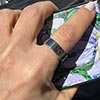 All of us are concerned about identity theft, and those concerns multiply when we consider that our children are often targets for identity theft, as well. In fact, a recent study from Carnegie Mellon found that 10% of children had someone else using their social security number, an outstanding 50x higher than the study's adult population.
All of us are concerned about identity theft, and those concerns multiply when we consider that our children are often targets for identity theft, as well. In fact, a recent study from Carnegie Mellon found that 10% of children had someone else using their social security number, an outstanding 50x higher than the study's adult population.
As kids head back to school, all those forms you provide to your school and associated programs with your child's information become new sources of risk. Today, the Federal Trade Commission (FTC) issued a consumer alert advising parents on how to limit the risk of identity theft taking place in your child's educational environment.
The federal Family Educational Rights Privacy Act (FERPA) protects the privacy of student records and gives parents the right to opt-out of sharing contact information with third parties, including other families. The FTC recommends that parents:
- Find out who has access to your child's personal information, and verify that the records are kept in a secure location.
- Before you reveal any personal information about your child, find out how it will be used, whether it will be shared, and with whom.
- Ask your child's school about its directory information policy. Student directory information can include your child's name, address, date of birth, telephone number, email address, and photo. FERPA requires schools to notify parents and guardians about their school directory policy, and give you the right to opt-out of the release of directory information to third parties. It's best to put your request in writing and keep a copy for your files. If you don't opt-out, directory information may be available not only to the people in your child's class and school, but also to the general public.
- Consider programs that take place at the school but aren't sponsored by the school. Your child may participate in programs, like sports and music activities, that aren't formally sponsored by the school. These programs may have web sites where children are named and pictured. Read the privacy policies of these organizations, and make sure you understand how your child's information will be used and shared.
- Take action if your child's school experiences a data breach. If you believe there's been a data breach and your child's information has been compromised, contact the school to learn more. Keep a written record of your conversations. The U.S. Department of Education takes complaints about these incidents.
It's also prudent to check your child's credit record to ensure that there are no issues that need to be dealt with. If you believe your child may be the victim of identity theft, follow these steps for what to do when your identity has been stolen.















From ACCA course provider on October 04, 2011 :: 5:59 am
The information you share is specially useful when we have to protect not only our child’s personal information but our information as well. In today cruel world you never know how your data will be used. Thanks for the simple advices that will help us to protect our children.
Reply